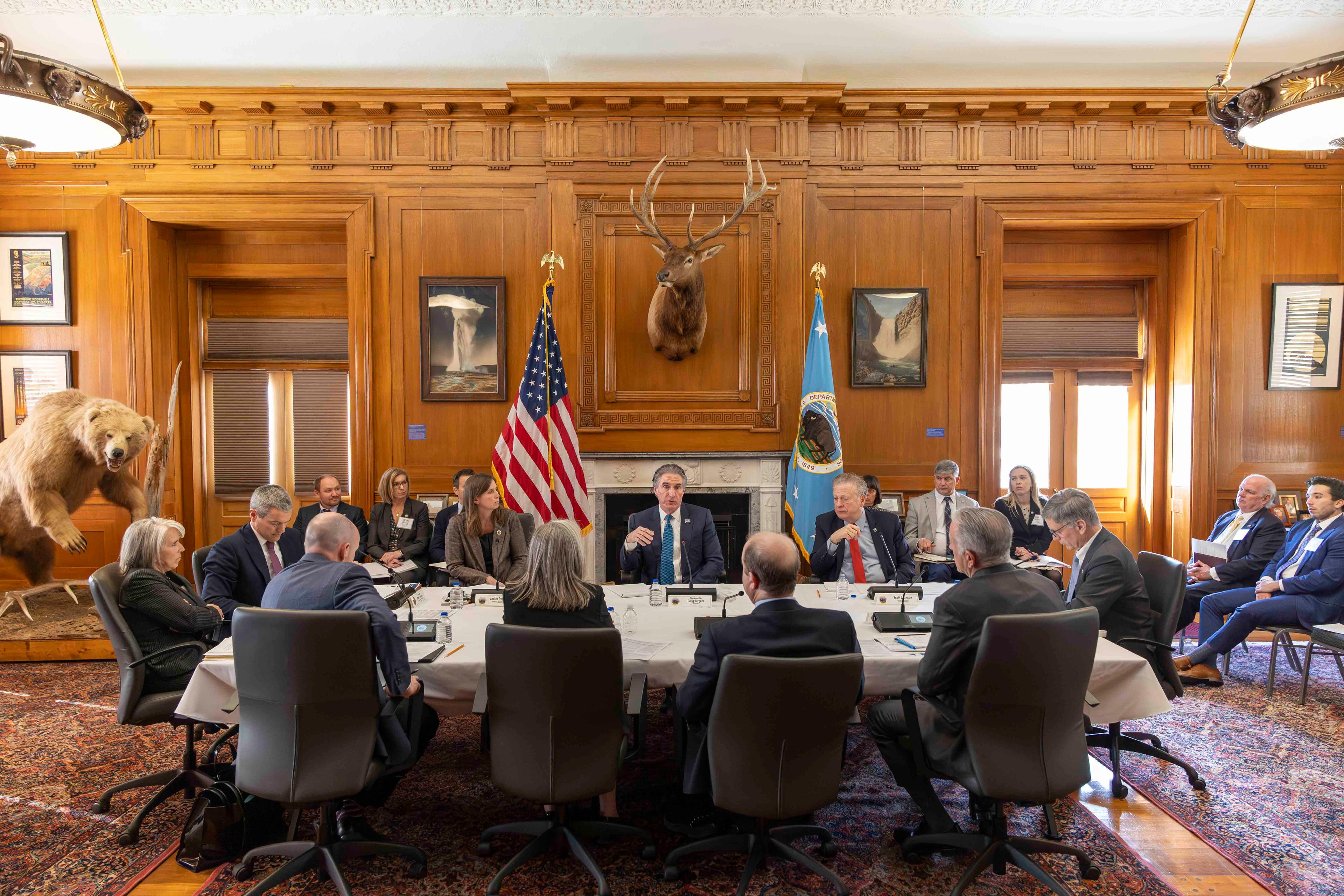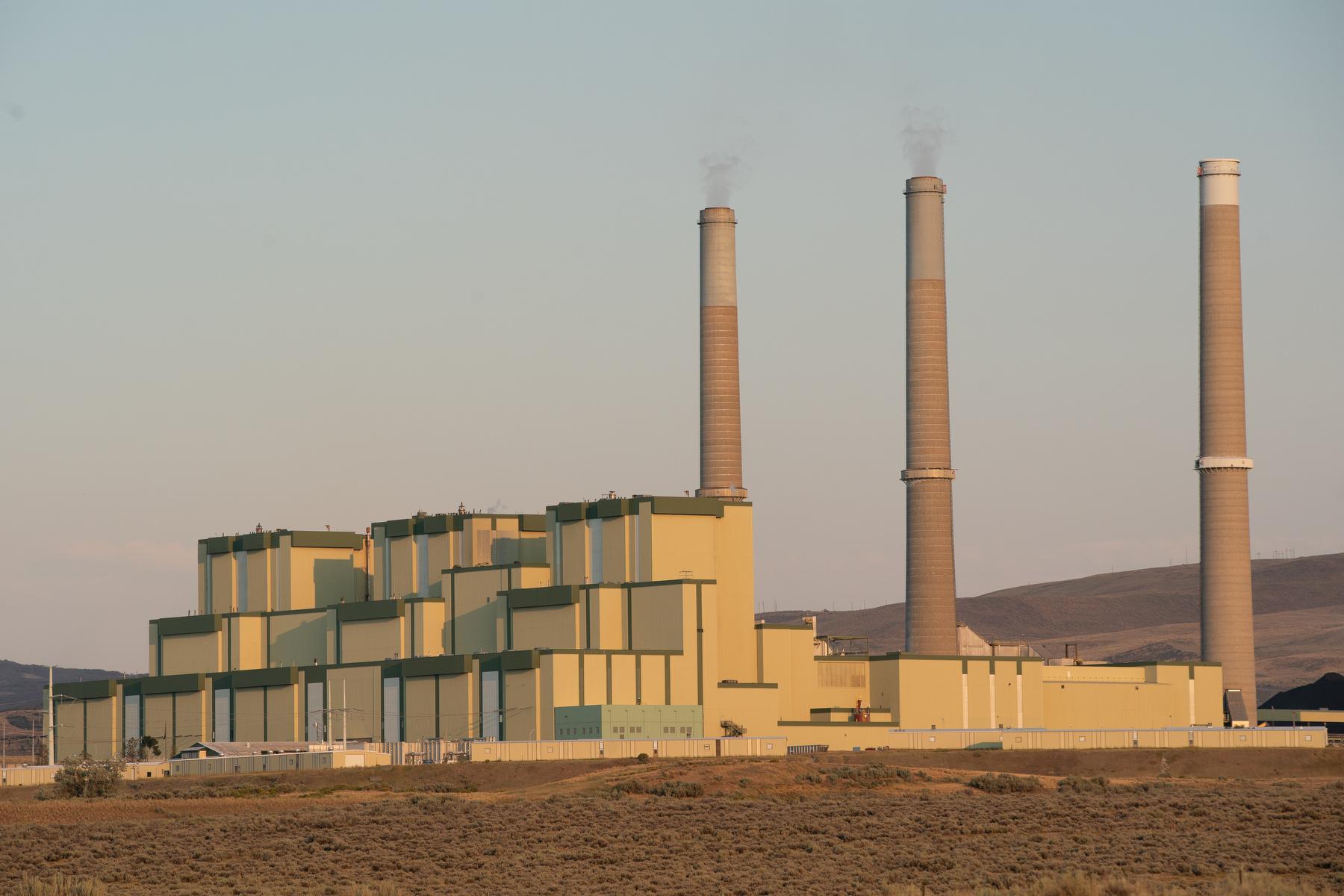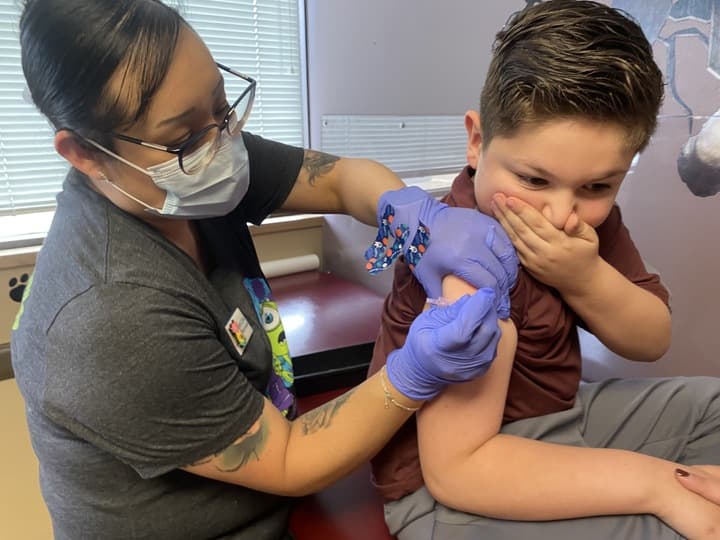

The oil and gas industry in Colorado is bracing for sweeping regulatory changes.
Gov. Jared Polis is set to sign one of the most hotly contested bills from the new Democratically-controlled legislature. Senate Bill 181 includes more than a half dozen amendments and cements health and safety as top priorities.
Jeff Robbins is largely responsible for implementing the changes. Robbins is the new head of the Colorado Oil and Gas Conservation Commission, which is responsible for permitting and for oversight.
Robbins talked to Colorado Matters about how COGCC may change, how the regulations will affect business and more.
Interview Highlights
Answers have been edited and condensed for clarity.
On how the bill will alter the oil and gas commission:
"Well, there are a few things that as part of the bill are gonna create change at the Commission.
First off, and foremost, the make-up of the Colorado Oil and Gas Commission itself has changed upon the effective date of the bill. The commission will change from a commission that had three industry members to a commission that has one industry representative.
So that’s a pretty significant change, just to get started. We’re working hard with the administration to get that new commission up and going so that we can hold our delayed April hearing sometime in early May.
The direction from the Colorado Legislature is that the Oil and Gas Commission is no longer going to foster oil and gas development but instead it will regulate oil and gas development in a manner that is protective of public health, safety, welfare and the environment. And I think having this new nine-member commission with the various prisms they’re bringing to the decisions of the commission is important."
On whether there will be negative impacts to the oil and gas business:
"I don’t necessarily think so. We are also taking some efforts immediately to address the concern of the backlog [of drilling permits] and how we can make the commission more productive in terms of looking at oil and gas wells.
The legislation does provide to the Oil and Gas Commission that it can now no longer – currently it doesn’t charge any fees for oil and gas wells and there’s a $200 cap on the fee and that cap has been removed. Although frankly we’re probably gonna take up the fees associated with oil and gas after the initial oil and gas environmental, health, safety, welfare rules."
On balancing the demands of activists and industry:
"I’ve been meeting with the oil and gas industry as well as stakeholders from all sides and telling them that we’re planning on implementing this new regulatory framework. And at the same time, we’re going to try to keep business as usual and moving forward with responsible development of the natural resources. But that’s in a manner that under – that looks through the prism of 181, that is protective of health, safety, welfare and the environment. "
Full Transcript
Ryan Warner: This is Colorado Matters from CPR News, I’m Ryan Warner. The oil and gas industry here is braced for sweeping regulatory changes. Governor Polis is set to sign one of the most hotly-contested bills from the new Democratically-controlled legislature. Jeff Robbins will largely be responsible for implementing all the change. He’s the new head of the Colorado Oil and Gas Conservation Commission. Hi, Jeff. Jeff Robbins: Good morning. RW: So the COGCC remain neutral on this bill, Senate Bill 181, as it does on legislation in general. The measure’s goal is to elevate health and safety. How will your commission, which is so central to permitting and oversight, how will it most change? JR: Well, there are a few things that as part of the bill that are gonna create change at the Commission. First off, and foremost, the make-up of the Colorado Oil and Gas Commission itself has changed upon the effective date of the bill. The commission will change from a commission that had three industry members to a commission that has one industry representative. There will be a representative from Public Health, a representative from the environment, a representative representing wildlife protection, a soils and reclamation representative, or someone that has technical experience relevant to the issues of the commission and then the representative of local government and then an AG and mineral owner representative as well as our directors of CDPHE and DNR. So that’s a pretty significant change, just to get started. We’re working hard with the administration to get that new commission up and going so that we can hold our delayed April hearing sometime in early May. RW: And do you think that those are important changes, in terms of reflecting the stakeholders around the oil and gas? You mentioned soils, you mentioned public health, you mentioned natural resources. JR: Well, the direction from the Colorado Legislature is that the Oil and Gas Commission is no longer going to foster oil and gas development but instead it will regulate oil and gas development in a manner that is protective of public health, safety, welfare and the environment. And I think having this new nine-member commission with the various prisms they’re bringing to the decisions of the commission is important. RW: In many ways Governor Polis’s signature will be the starting line, not a finish line. I mean lots of rules have to be drawn up. The Legislature gets all the glory or whatever the opposite of glory is for their work. You have the hard work that can take months, can take up to a year of drawing up specific regulations for things like flow lines and methane. Let’s talk flow lines. An improperly abandoned one in Firestone was connected to a deadly home explosion. What changes are needed there? JR: Well, the legislature has given us direction that we should take a look at the flow line rule making that a done last year and make potentially some changes to that. In particular there was the legislative direction that the information relevant to the flow lines should be made public so that people are aware of where flow lines are located. And so that will certainly be one of the initial rule makings that we are delegated to undertake. There are a number of others that we will undertake in this first year of – you’re right, of, a lot of rolling up the sleeves and a lot of work that needs to be done. RW: How long do you think that might take? JR: I anticipate that – so, the first rule making, or rule makings, plural, involves the sort of health, safety, welfare new mandate that we’ve received from the Colorado legislature. We have to take a look at our rules through the prism of regulating in a manner that protects health, safety, and welfare. As opposed to the previous mandate of fostering development. We have to look at alternative locations and cumulative impacts and we also have to look at redefining the local government, state government relationship because – RW: I mean are we talking a month here? Are we talking six months? A year? JR: I think we’re probably talking more like a year to get that first rule making done. RW: A year, all right. The industry says rule making is gonna slow down their pace of work, and that leads to their economic fears. Here is David Sappington, he’s a resident of Weld County who used to work for the oil industry. David Sappington: Too much regulation's never a good thing. You know corporate America needs to be regulated but they don’t need to be overregulated. RW: Will this increase the cost of oil and gas doing business in Colorado? JR: I don’t necessarily think so. We are also taking some efforts immediately to address the concern of the backlog and how we can make the commission more productive in terms of looking at oil and gas wells. We’re gonna create – RW: Let me just say that the backlog that you refer to there is a backlog in about 6,000 drilling permits, I think more than that. JR: It’s about 6,000. We are continuing to process oil and gas locations, as well as well sites at the Commission and then at the same time we’ll be working hard to bring these new rules into being. RW: But there will be some additional costs at the front end for oil and gas, no? JR: The legislation does provide to the Oil and Gas Commission that it can now no longer – currently it doesn’t charge any fees for oil and gas wells and there’s a $200 cap on the fee and that cap has been removed. Although frankly we’re probably gonna take up the fees associated with oil and gas after the initial oil and gas environmental, health, safety, welfare rules. RW: But there’s also the potential for a savings here, if for instance rules on methane capture, which is their product, if those are tightened, I suppose. JR: That’s right, and that’s gonna be the purview of the Air Quality Control Commission who will be doing a rule making on that front here over the next few months. RW: With that 6,000-permit backlog, how many do you expect to get through as you’re also making all these rules for the next year? JR: Well, I think it’s gonna be somewhat business as usual. We’ve been continuing to move through the backlog. We’ve approved in any number of well locations and wells since January when I took this position. We’ll continue to do that while at the same time working hard to get the new rules in place so that we’re protective of the environment and undertaking our new mission. RW: Okay so bit of walking and chewing gum you’re saying for the next year. You're an attorney. Previously, you represented Adams and Boulder counties and cities like Aurora and Lafayette on oil and gas cases. So I want to turn to the local control aspect of the bill. It'll allow communities to minimize the adverse impacts of drilling "to the extent necessary and reasonable to protect public safety." And Jeff, I just want to point out that activists, environmental groups, have cheered the passage of Senate Bill 181, this overhaul. They’ve raised concerns about that necessary and reasonable language. Here is Christiaan van Woudenberg, he’s an elected town trustee in Erie. Christiaan van Woudenberg: So lawyers will decide what that means, and the problem is that these oil and gas companies have access to resources, magnitudes of orders beyond a town council like Erie, for example. RW: And he means by resources, that they have deep pockets to spend on lawyers. Will the issue of local control, which is also so central to this legislation; do you think that issue is ultimately going to be decided in the courts? JR: I hope not. I think that local governments and I’ve been a – was a local government lawyer before taking this position, I think that local governments understand how to regulate in a necessary and reasonable manner. I think that’s what they’ve generally done with regard to most land-use matters over the course of the years. RW: And yet those have also gone to court. JR: At times those have gone to court. I think that local governments are gonna be well equipped to provide the new level of protection and regulation of oil and gas under those constraints and I think they’ll do a good job with that. As I am hopeful that – I think that our commission will do the same thing. RW: And I suppose we may see some communities enact tougher regulations and some that feel more comfortable with oil and gas not doing so. JR: I think that’s right. I think you’re gonna see the vast majority of local governments continue to defer to the State Oil and Gas Commission to be the regulator of oil and gas. And then there will be other communities that will be more involved in regulating at the local level. RW: Let’s talk a bit about your mission as the new director of the COGCC. Some activists have criticized the commission for not scrutinizing permits enough, particularly those close to homes. Do you think that criticism has been justified? JR: I think that – I’m, I’m looking forward with regard to the new legislative mandate that we have at the Commission. I can tell you that my staff is excited to implement that new legislative mandate and I think we’re well equipped to do a good job of ensuring the development of our natural resources while also protecting our communities and the environment. RW: Let’s talk about that idea of ensuring the responsible development. You have folks in oil and gas rich parts of this state who are in a near panic about these rules and who see economic doom on the horizon. What would you tell them right now? JR: Well, I have been telling them because I’ve been meeting with the oil and gas industry as well as stakeholders from all sides and telling them that we’re planning on implementing this new regulatory framework. And at the same time, we’re going to try to keep business as usual and moving forward with responsible development of the natural resources. But that’s in a manner that under – that looks through the prism of 181, that is protective of health, safety, welfare and the environment. RW: Is that a contradiction to say “business as usual” after this law is signed? JR: I don’t, I don’t think so. I think that the legislature has provided to the Commission, our duty is no longer fostering but regulating and that’s what we – the Commission has been doing for any number of years and we’re just gonna do it in a manner that elevates the protection of health, safety, welfare and the environment. RW: Jeff, thanks for spending time with us. JR: Thank you. RW: Jeff Robbins is the new head of the Colorado Oil and Gas Conservation Commission. He spoke to us about Senate Bill 181; it’s a massive oil and gas bill aimed at reforming the industry across the state. This is Colorado Matters from CPR News. |







